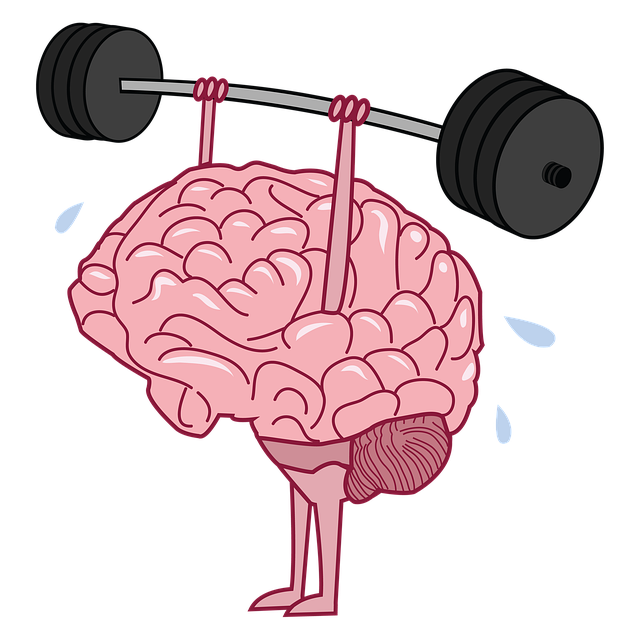Longmont Mental Health Evaluations Therapy emphasizes the importance of coping skills in navigating life challenges and reducing mental illness stigma. Through collaborative evaluations, clients uncover ineffective coping strategies and learn healthier alternatives like conflict resolution and stress management techniques. Integrating these skills into therapy, combined with tools like journaling and mindfulness exercises, empowers individuals to manage stressors, improve overall well-being, and enhance therapy benefits. Specialized therapists guide clients in developing robust coping mechanisms, enabling them to confront anxiety-inducing situations head-on.
Coping skills development is a vital component of mental well-being, enabling individuals to navigate life’s challenges with resilience. This article explores essential aspects of enhancing coping abilities, from understanding their profound impact on mental health to practical strategies for fostering robust mechanisms. We delve into the role of assessments like Longmont Mental Health Evaluations in identifying coping styles and guide readers through integrating effective coping skills in therapy for transformative change.
- Understanding Coping Skills and Their Significance
- Assessing Coping Mechanisms through Longmont Mental Health Evaluations
- Integrating Coping Skills into Therapy for Effective Change
- Practical Strategies for Developing Robust Coping Mechanics
Understanding Coping Skills and Their Significance

Coping skills are a set of strategies and behaviors that help individuals navigate through life’s challenges, manage stress, and maintain their emotional well-being. Understanding coping mechanisms is paramount in today’s fast-paced world, where various factors contribute to mental health issues. Longmont Mental Health Evaluations Therapy highlights the importance of equipping individuals with effective coping skills as a preventive measure against rising mental illness rates.
These skills play a pivotal role in mitigating the impact of stress and adversity. By developing healthy coping strategies, people can reduce the severity of symptoms associated with mental illnesses and improve their overall quality of life. Moreover, Stress Management Workshops Organization emphasizes that learning and practicing these skills early on can also help break down Mental Illness Stigma Reduction Efforts by fostering understanding and self-care. Additionally, for mental health professionals, integrating robust coping strategies into their Risk Management Planning is essential to ensure they can provide holistic care while safeguarding their own well-being.
Assessing Coping Mechanisms through Longmont Mental Health Evaluations

Understanding one’s coping mechanisms is a pivotal step in personal growth and mental well-being, which is why Longmont Mental Health Evaluations play a crucial role. These evaluations provide an in-depth look at how individuals navigate life’s challenges and manage stress. Through a comprehensive series of questions and scenarios, therapists can assess a wide range of coping strategies. This process helps uncover both adaptive and maladaptive mechanisms, allowing for tailored therapy interventions. By identifying ineffective or unhealthy coping habits early on, individuals can learn better alternatives, such as conflict resolution techniques, enhanced communication strategies, and constructive public awareness campaigns development.
The Longmont Mental Health Evaluations are designed to be a collaborative effort between the client and therapist. They provide valuable insights into an individual’s emotional response to various situations, enabling therapists to guide clients towards more positive and resilient coping methods. These evaluations are not just diagnostic tools but also serve as a roadmap for personal development, empowering individuals to take charge of their mental health and embrace healthier ways of managing life’s complexities.
Integrating Coping Skills into Therapy for Effective Change

Integrating coping skills into therapy is a powerful strategy for fostering effective change in individuals seeking mental health support, such as those undergoing Longmont Mental Health Evaluations. By teaching clients practical tools to manage stress, regulate emotions, and navigate challenging situations, therapists enable them to develop resilience and improve their overall well-being. This tailored approach goes beyond traditional talk therapy by empowering individuals with self-care techniques that can be incorporated into their daily lives, enhancing the benefits of therapy outside of the treatment room.
The incorporation of mental wellness journaling, exercise guidance, and compassion cultivation practices as coping strategies has shown promise in various therapeutic settings. Journaling allows individuals to reflect on their thoughts and emotions, providing valuable insights for personal growth. Exercise serves not only as a physical stress reliever but also as a means to structure and focus the mind, promoting mental clarity. Compassion cultivation practices encourage individuals to cultivate kindness and understanding towards themselves and others, fostering a sense of connection and reducing feelings of isolation. These integrated coping skills support clients in developing a comprehensive self-care routine, contributing to better mental health outcomes.
Practical Strategies for Developing Robust Coping Mechanics

Developing robust coping mechanisms is a vital part of maintaining mental wellness, and Longmont Mental Health Evaluations Therapy offers valuable insights for navigating life’s challenges. Practical strategies can be integrated into daily routines to foster resilience and emotional balance. One effective approach involves identifying personal stress triggers and implementing specific techniques to manage them. For instance, if work-related deadlines induce anxiety, practicing mindfulness exercises or engaging in physical activity during these periods can significantly reduce stress levels.
The Mental Wellness Podcast Series Production provides a wealth of resources for exploring diverse coping skills. Incorporating activities like journaling, deep breathing exercises, or connecting with nature into one’s routine can enhance emotional regulation. Additionally, seeking professional guidance from therapists specialized in Longmont Mental Health Evaluations can offer tailored strategies for navigating complex emotions and promoting overall mental health. These practices collectively contribute to building a robust coping toolkit, ensuring individuals are equipped to handle life’s stressors effectively.
Coping skills development is a pivotal aspect of mental well-being, as highlighted by assessments like the Longmont Mental Health Evaluations. By integrating these skills into therapy, individuals can effectively navigate life’s challenges. The strategies outlined in this article, including those for robust coping mechanisms, empower folks to take charge of their mental health. Through understanding and practicing these techniques, one can foster resilience, enhancing overall quality of life and the effectiveness of Longmont Mental Health Evaluations therapy.














